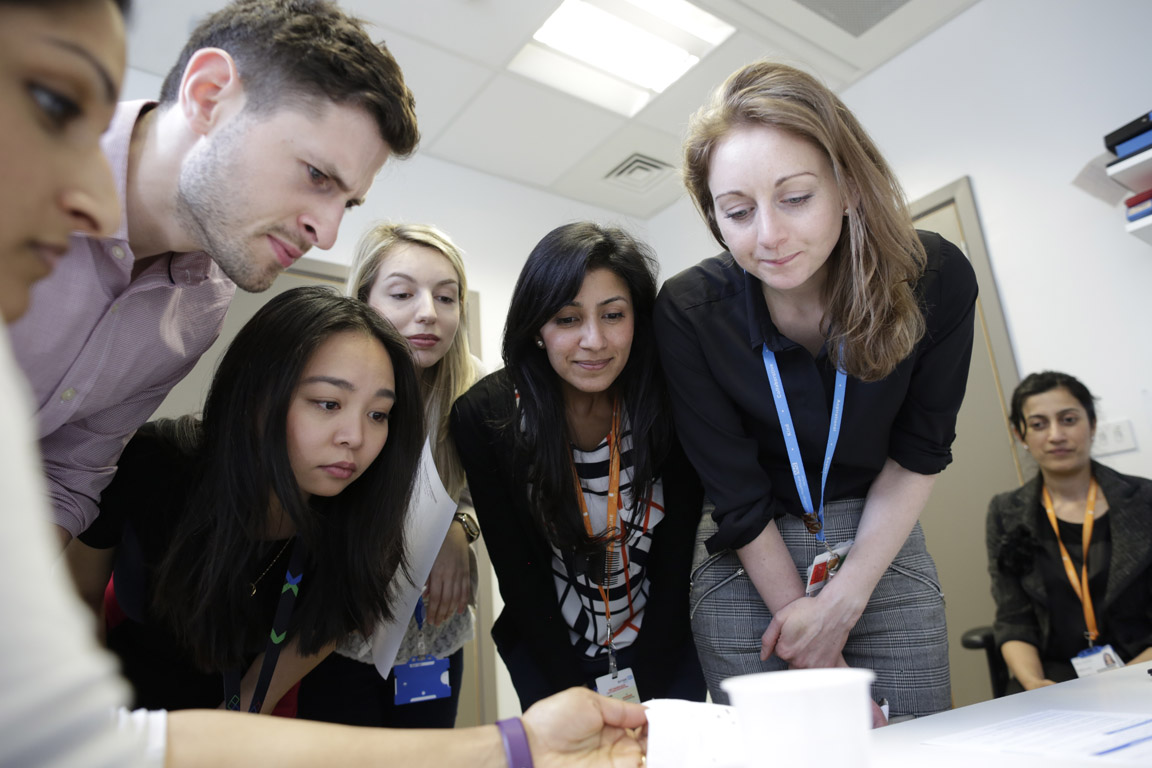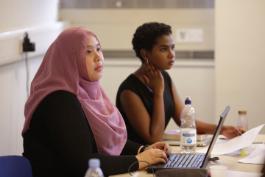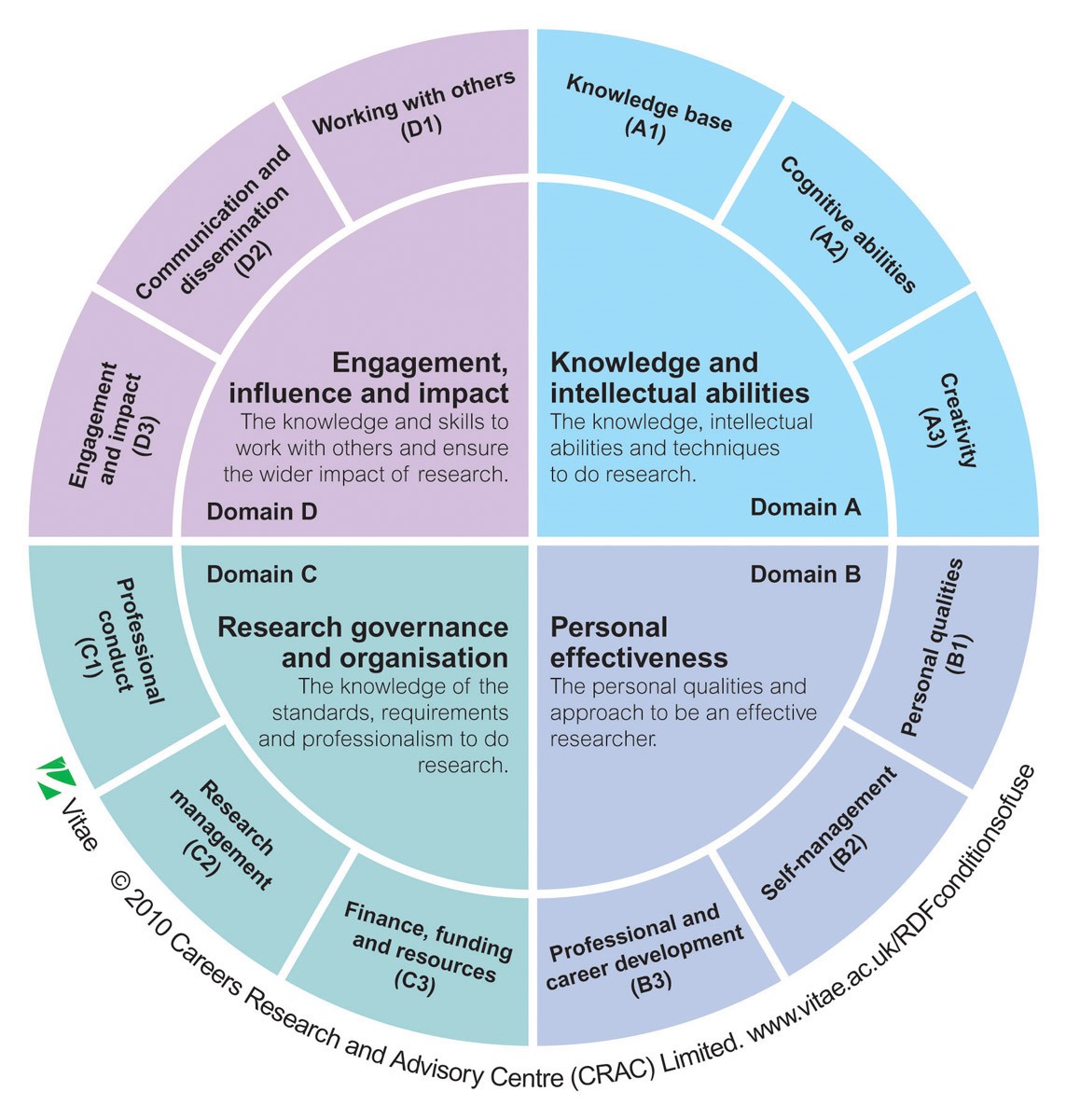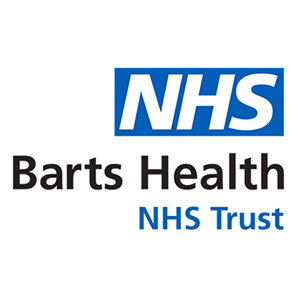Global main menu
- Study with us
- Postgraduate Research

Wellcome Trust PhD Programme in Science
Health data in practice: human-centred science.
Research area: Population and Public Health
This programme has now recruited its final intake of students. See the WIPH PGR pages for other opportunities.
Follow us on Twitter: @hdip_dtp

Our Wellcome-funded doctoral training programme applies human-centred data research to health and care data, and will introduce you to a wider context for your research, enabling you to draw on concepts, disciplines and methods underpinning algorithmic designs, sensing and data capture, human-interactions, qualitative and quantitative evaluation and decision-making, in real-world settings. You will develop as a future scientific leader able to apply interdisciplinary perspectives to your research and realise the potential of innovations in health data research for the benefit of patients, the public, health care systems, and society.
The Wellcome Trust Health Data in Practice programme combines scientific excellence with a commitment to improving the working environment and transition support for trainees. We commit to being part of an evolving community of practitioners who will develop and share practice to bring science and culture together, placing both firmly at the heart of what we do.
For details of our current students and their research. click here .
- Supervision
- Eligibility

Human-centred data science operates ‘at the intersection of human-computer interaction, computer-supported cooperative work, human computation, and statistical and computational techniques of data science’ while preserving ‘the richness associated with traditional methods while utilising the power of large data sets.’ We adapt this concept to the 'health data in practice' doctoral training programme with the goal of developing highly skilled future leaders able to apply interdisciplinary perspectives to research and innovations in health data science for the benefit of patients, the public, health care systems and society.
Our east London location
Barts and The London is committed to pioneering medical education and research. Being firmly embedded within our east London community, and with an approach to education and research that is driven by the specific health needs of our diverse population, the programme will draw on these networks to enhance your research.
Programme management team
Professor Rohini Mathur
Director; Professor and Chair of Health Data Science
Professor Jianhua Wu
Director; Professor of Biostatistics and Health Data Science
Professor Borislava Mihaylova
Professor of Health Economics; 'Effective and Efficient Evaluation' Theme Leader
Professor Patrick Healey
Professor of Human Interaction; ‘Human-Data Interaction’ Theme Leader
Professor Deborah Swinglehurst
Professor of Primary Care, Director of Postgraduate Studies; ‘Health Data in Practice’ Theme Leader
Dr Nina Fudge
Associate Director, Lecturer in Social Science
Dr Meredith Hawking
Dr Harriet Larvin
Associate Director, Research Fellow in Health Data Science
Dr William Marsh
Associate Director, Senior Lecturer in Computer Science
Dr Moneeza Siddiqui
Associate Director; Lecturer in Genetic Epidemiology
Dr Runguo Wu
Associate Director, Senior Health Economist
Dr Eleanor Groves
Programme and Researcher Development Manager
For queries regarding the programme please contact [email protected] .
Year 1: MRes in Health Data in Practice
The MRes programme will provide:
- an introduction to key concepts and research methods and analysis highlighting relevant methodological issues and challenges that comprise the interdisciplinary foundations of the programme and will include an introduction to research design, qualitative and quantitative methods, and societal and ethical issues related to data technologies
- experience of possible research areas for further study including opportunities to apply the knowledge gained and undertake a small research project during the MRes year
- an environment in which you can develop a solid understanding of the wider context of health data and critical thinking in this field.
The programme comprises:
- Three compulsory taught modules (worth 75 credits in total)
- Three optional taught modules (worth 15 credits each)
- One project module (worth 60 credits)
Total – 180 credits: Level 7
Full breakdown of modules
Years 2-4: PhD
The programme is framed in four scientific themes: Human-data interaction; Health data in practice; Effective and efficient evaluation; and Actionable information. You will work with your supervisors to develop an interdisciplinary research proposal within one of these four themes.
More information on the themes
You are expected to pass the six- to nine-month progression via a 2,000-word report and a short 10-minute oral presentation to a Progression Panel comprising supervisor(s), relevant Director of Graduate Studies and the Programme Director or Co-Directors.
There are further milestones at 18 months (20,000 word report to the same assessors), and again at 30 months (to include additional data since the 18 month report plus a plan of the thesis).
Transfer to write-up status in the final year is considered a progression point and submission of the thesis within four years is a requirement.
You will also be supported to submit at least one manuscript and to present at relevant national/international scientific meetings during your studentship.
We have a pool of supervisors across all three faculties. Students are support to assembles a supervisory team for their PhD project during the MRes and are required to co-produce a research proposal prior to starting their PhD.
Details of our current supervisor pool are below.

Our students have access to our enrichment programme; a suite of researcher development workshops and activities designed to enhance their research training skills.
Find out more about researcher development on the programme.

Every PhD student has a personal tutor who is independent of their academic supervisors, and who monitors their academic progress and provides pastoral care when needed.
*UKRI domains:

Our vision is to create a vibrant and inclusive interdisciplinary learning environment, which signals the importance we attach to diversity and inclusivity in our interactions, and which provide a safe and welcoming environment in which individuals can flourish and create. Our vision is aligned with that of the Wellcome Trust's Reimagining Research group , which aims to create a research culture that:
- supports creativity, with ambitious and collaborative working across disciplines and institutions
- prioritises diversity and inclusion, so that everyone benefits from supportive relationships no matter what their background
- produces open research, which is conducted with honesty and integrity.
Research environment
You will access science in internationally-leading centres, at the forefront of the science and execution of pragmatic clinical trials, and innovative evaluation of complex interventions and social practice in health care, incorporating ethnographic approaches. It includes leading computer scientists researching human interactions and decision-making, and the development and communication of trustworthy and explainable algorithms, as well as research groups from psychology, digital humanities, bioethics, linguistics and drama applied to health, with whom they interact. It will be closely integrated with the work of the Institute for Advanced Data Science, and Centres for Intelligent Sensing and Advanced Robotics at Queen Mary. Our leadership in the Discovery Programme – an innovative near real-time integrated health record for 2.2 million people – presents an unprecedented and trusted opportunity to access this important and unique asset to understand health data in practice.
The following NHS organisations will provide access to internships and placements, access to clinicians, patients and commissioners, and channels for dissemination and public engagement:
- Barts Health NHS Trust
- Primary Care Networks and general practices linked to the Clinical Effectiveness Group
- Public Health departments and clinical commissioning groups in Tower Hamlets, City & Hackney, and Newham
- The Discovery Programme : data publishers and stakeholders
The following organisations will provide access to industry placements for students and potential research collaborations:
- Learning Health Solutions

Other UK research organisations
HDRUK and The Alan Turing Institute: opportunities for internships, placements and exchange visits including leveraging this site’s international links in Canada and Australia and their role as Welsh Administrative Data Research UK hub.

At the end of the third year, you will meet with the Programme Director and your supervisor to discuss career transitions and develop a plan for placements, training and skills development. You will also have the opportunity to apply to the Programme Transition Fund.
The School provides support for work and industry placements for doctoral students reaching the end of their PhD and transitioning into new roles. As well as working closely with the NHS, we have access to industry partners through MedCity’s Collaborate to Innovate programme. Students can access an eight-week QIncubator programme and QConsult – QMUL’s award-winning employability programme.
Careers and Enterprise at Queen Mary

While conducting your projects, you will receive advice, training and support around project management and presentation skills from the Queen Mary Careers and Enterprise team which also offers a range of support to prepare students for job applications, interviews, work experience, and career choices.
Queen Mary also provides support for PhD students and women researchers from all backgrounds, ages and stages of their lives through the Springboard Women’s Development Programme .
Eligibility information and details of resources the studentships provide, including stipend, is available on the Wellcome website .
You must be a graduate or student who has, or expects to obtain, at least an upper second-class degree (or equivalent for EU and overseas candidates) in a relevant subject. Relevant subjects include quantitative disciplines such as Statistics, Computer Sciences, Mathematics, Bioinformatics and Biomedical Sciences, and qualitative disciplines such as Anthropology, Ethnography and Social Sciences.
Candidates with other relevant qualifications or research experience may also be eligible. Please not that medical, dental or nursing undergraduate degrees are not considered relevant disciplinary areas. For further information please see the application information page.
Successful candidates will display their passion for a career in research, good communication skills and scientific knowledge of the field.

Global main menu
- News and events
Apply by 16 January for funded places on MRes + PhD Health Data in Practice at Queen Mary
Applications are invited for places on the Wellcome Trust-funded ‘Health Data in Practice’ PhD programme at Queen Mary.
Our four-year interdisciplinary doctoral training programme adopts a human-centred, contextualised approach to researching health and care data situating your research in the real world of health care practice. It will enable you to draw on concepts, disciplines and methods underpinning algorithmic designs, sensing and data capture, human interactions, qualitative and quantitative evaluation and decision-making, in real-world settings.
You will develop as a future scientific leader able to apply interdisciplinary perspectives to your research and realise the potential of innovations in health data research for the benefit of patients, the public, health care systems, and society.
Programme structure:
Year 1: You will undertake an MRes in Health Data in Practice, which will give you a broad knowledge base comprising core modules including health data in practice, qualitative and quantitative research methods; a wide choice of elective modules, as well as a substantial dissertation research project.
Years 2-4: You will co-develop a research project in one of the four thematic areas of the programme. In the final year, you will have the opportunity to apply to a transition fund which provides up to nine months support to aid you in your next career steps.
- Gain ‘in-practice’ context to your health data science research through an MRes in Health Data in Practice in your first year
- Access data in real-world settings through our strong NHS and data science partnerships
- Benefit from our inter-disciplinary supervisor pool spanning population health and health data sciences, computer science, clinical medicine, social sciences, arts and humanities, and life sciences.
- Access innovative and extensive career development opportunities and career transition support
- Be funded to complete your MRes and PhD through a studentship including Home/EU tuition fees, research and training costs
- Join the most inclusive Russell Group university (The Times and Sunday Times Good University Guide, 2021), which is committed to promoting a positive research culture
Who are we looking for?
- You should hold or be expected to obtain at least a 2.1 honours degree (or equivalent for EU and overseas candidates) in a relevant qualitative or quantitative subject area , including but not limited to statistics, computer sciences, mathematics, psychology, bioinformatics, biomedical sciences, and qualitative disciplines including but not confined to anthropology, ethnography, social sciences
- You will display your passion for a career in research, critical thinking ability, curiosity, and commitment to team science
FIND OUT MORE AND APPLY
The application deadline is Monday 16 January 2023 (5pm GMT) and interviews will be held in late March.
See our website for further information and application guidance or join our webinar, 15 November, 12-1pm (GMT) to find out more: Book your place.
In line with Queen Mary and the Wellcome Trust’s commitment to equality, diversity and inclusion; if you would like to discuss your eligibility or any mitigating circumstances, please contact the Programme Manager on [email protected] .

IMAGES
VIDEO